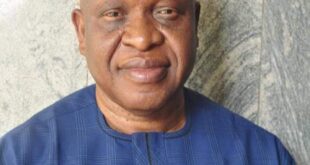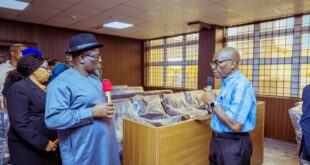The Federal Government of Nigeria has declared April 9 and 10 as public holidays for the Muslim Ummah to celebrate the 2024 Eid-Ei-Fitr.
However, this declaration has stirred mixed reactions among residents of the Anambra capital city, with many expressing concerns over the potential negative impact on the economy.
The additional day of rest, which was not initially anticipated by the public, has led to worries about economic hardship for the citizenry.
The decision has been criticized by residents and business owners, who believe that the extension will result in a slowdown of business activities and cause economic waste.
Former Chairman of Awka Chamber of Commerce, Chief Felly Akosa, has described the additional day as “unfair to the economy of the country,” emphasizing that people were unprepared for the extended break.
He stressed the importance of careful planning in the future to avoid similar disruptions to the economy.
National Vice President of Ohanaeze Ndigbo, Chief Damian Okeke-Ogene, echoed these sentiments, stating that the policy could lead to huge economic losses.
He suggested that a well-planned program should be in place before declaring a public holiday for any celebration that will be national, especially considering the current state of the economy and other sectors.
Mazi Christian Beluchukwu, a businessman in Awka, also expressed his concerns about the extension of the Eid-El-Fitr public holiday to April 11.
He argued that any public holiday for three days would result in an economic loss to the nation, and suggested that it would be more beneficial to stick to the two-day national public holidays.
Beluchukwu shared a personal experience of his wife being unable to receive medical attention at a public hospital due to the holiday, ultimately leading to additional expenses at a private facility.
As Nigeria grapples with a struggling economy, the decision to extend the Sallah holiday has prompted discussions about the balance between religious observances and economic stability.
While some argue that the additional day of rest is necessary for the Muslim faithful to celebrate their holiday, others believe that careful consideration should be given to the potential consequences for the broader economy.
Subscribe to the Advocate News letter and receive news updates daily in your inbox.
 Advocate.ng Latest news update on politics, entertainment, sport and more
Advocate.ng Latest news update on politics, entertainment, sport and more




